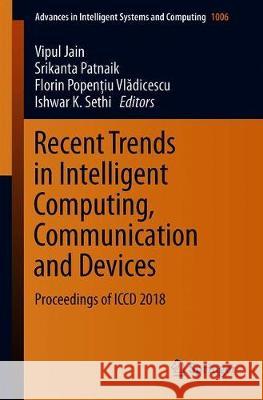Recent Trends in Intelligent Computing, Communication and Devices: Proceedings of ICCD 2018 » książka
topmenu
Recent Trends in Intelligent Computing, Communication and Devices: Proceedings of ICCD 2018
ISBN-13: 9789811394058 / Angielski / Miękka / 2019 / 1095 str.
Kategorie:
Kategorie BISAC:
Wydawca:
Springer
Seria wydawnicza:
Język:
Angielski
ISBN-13:
9789811394058
Rok wydania:
2019
Wydanie:
2020
Numer serii:
000453356
Ilość stron:
1095
Waga:
2.25 kg
Wymiary:
23.5 x 15.5
Oprawa:
Miękka
Wolumenów:
01











